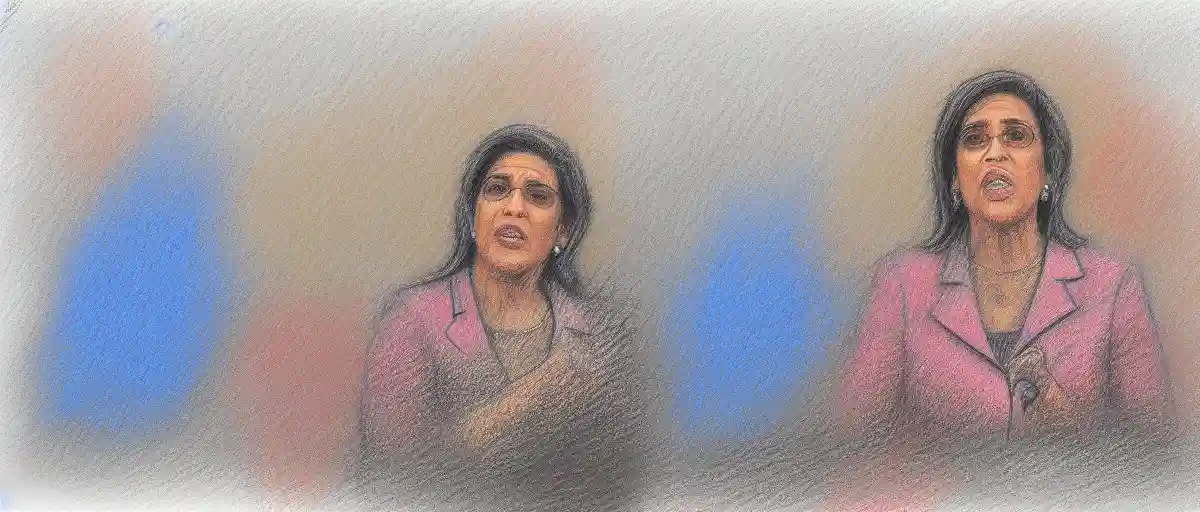This Could Pique Your Interest As Well:
Explosive Debate Erupts Over Congresswoman’s Israel Comments
The recent controversy surrounding Democratic congresswoman Pramila Jayapal’s remarks on Israel at the Netroots Nation conference has ignited a heated debate on both sides of the political spectrum. While some argue that Jayapal’s comments were an endorsement of boycotts against Israel, others contend that her emphasis on human rights does not necessarily equate to supporting such actions.
Those who support Jayapal’s statements argue that her focus on human rights is a crucial aspect of addressing the Israeli-Palestinian conflict. They believe that holding Israel accountable for its human rights record is necessary to achieve a just and equitable solution. They view boycotts as a legitimate nonviolent means to pressure Israel into taking meaningful steps towards a resolution.
Yet, opponents of Jayapal argue that her remarks were anti-Israel and even anti-Semitic. They claim that singling out Israel for criticism while ignoring the actions of other countries in the region demonstrates a bias against the Jewish state. They also contend that boycotts are counterproductive and only serve to further strain diplomatic relations, hindering the prospects for peace.
The controversy has not been limited to one political party. Republicans were swift in condemning Jayapal’s statements, accusing her of promoting anti-Semitism and demanding her removal from the House Judiciary Committee. On the Democratic side, pro-Israel groups and some party members expressed their disagreement with Jayapal’s approach, fearing that it could strain the party’s relationship with Israel.
In this age of heightened scrutiny and debate over U.S. policy towards Israel and Palestine, it is essential to approach this issue with nuance and respect for differing perspectives. While it is crucial to address human rights concerns, it is equally important to consider the complexity of the Israeli-Palestinian conflict and the potential consequences of boycotts.
Opinions on this issue will continue to vary, but it is vital for policymakers to engage in constructive dialogue and find a balanced approach that upholds both human rights and the prospects for a peaceful resolution. The controversy surrounding Pramila Jayapal’s remarks serves as a reminder of the ongoing challenges in finding a sustainable solution to the Israeli-Palestinian conflict.
Here's A Video We Thought You Might Also Like:
Author Profile

- I'm a science writer on a mission to make scientific discoveries accessible to everyone, and that includes exploring the political aspects of scientific research and policy-making.
Latest entries
 Breaking News2023.12.17Dumbfounding Revelation Former Florida State Representative Breaks Silence After Serving Prison Time
Breaking News2023.12.17Dumbfounding Revelation Former Florida State Representative Breaks Silence After Serving Prison Time Breaking News2023.12.15Jolting Revelation FBI’s Secret Surveillance of Catholics Exposed!
Breaking News2023.12.15Jolting Revelation FBI’s Secret Surveillance of Catholics Exposed! Breaking News2023.12.15Is Chris Christie the Bold Challenger the GOP Needs Critics Say No
Breaking News2023.12.15Is Chris Christie the Bold Challenger the GOP Needs Critics Say No Breaking News2023.12.14Senator’s Bold Move to Combat Antisemitism on College Campuses Sends Shockwaves – Will It Work
Breaking News2023.12.14Senator’s Bold Move to Combat Antisemitism on College Campuses Sends Shockwaves – Will It Work






